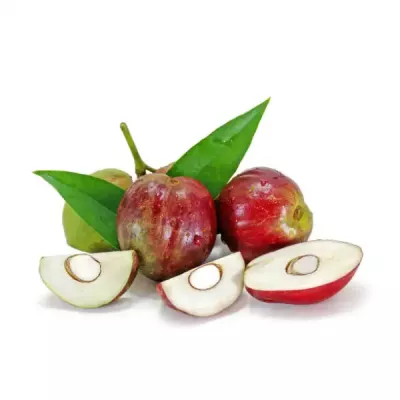



Mahkota dewa is a medicinal plant that originates from Indonesia and the Papua islands. This plant has many health benefits, such as treating diabetes, cancer, and infections. Mahkota dewa has a small tree-like shape with attractive red fruits.

Pay using UPI, Card or Netbanking

Shipping within 3 working days
Mahkota dewa is a fruit commonly found in Indonesia and Malaysia, but is known to have originated in the Papua island. It is mainly used for its health benefits. Mahkota dewa is thought to have a positive impact on diabetes, tumours, heart disease and cancer.
It also reduces the severity of high blood pressure, maintains uric acid levels properly, and prevents gout, kidney disease, diarrhoea, and allergies.
P.S. Though Mahkotah dewa may be beneficial in some cases, never substitute this for the medicines prescribed by your doctor!
Mahkota dewa grows well in hot climates and in shaded areas alike. Hence, it can be grown as an intercrop in rubber plantations and coconut plantations. Generally, the plants bear fruit within two years of being planted, however in some situations, it could take up to five years.
The fruits are green at first and then yellowish magenta-red when ripe. It is not eaten directly after cooking. It is either used as an essence or chopped and dried for future use.
The flowering period is from March to August. Fruits can be picked in four months. The harvest season is from August to November and December.
Watering and fertilising in the summer will give good results. An average of 100–120 fruits can be obtained from a single tree. Fruits weighing 150 g to 200 g can be obtained at different stages of growth. The fruits should be picked after they have matured.
IMahkota dewa contains flavonoids that can potentially lower the risk of heart disease. There are also powerful alkaloids that eliminate toxins from the body and fight cancer, and Soponin, an antioxidant and antifungal antibacterial agent.
Mahkota Deva is believed to have the ability to cure problems, such as high blood pressure, strokes, kidney inflammation, uric acid problems, and allergic tonsillitis.
Data sheet